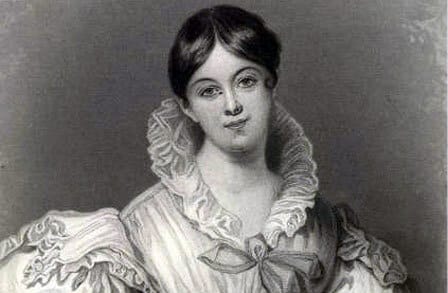Regarding Letitia Elizabeth Landon

At the New York Times, Lucasta Miller contributes an article that is part cautionary tale about 19th-century poet Letitia Landon, known as the "Female Byron." "We tend to think of women poets of the 19th century as unworldly creatures: Emily Dickinson, all in white, running away at the sight of strangers, or the equally reclusive Emily Brontë, writing out her poems in microscopic handwriting in tiny private notebooks," Miller begins. From there:
Neither wrote poetry for money or even with an eye to publication. As Brontë put it, “Riches I hold in light esteem / And love I laugh to scorn, / And lust of fame was but a dream / That vanished ere the morn.”
Those three subjects — money, sex and celebrity — were, in contrast, defining factors in the life and career of Letitia Elizabeth Landon, an early 19th-century poet. Though forgotten today, Landon was internationally famous in her lifetime as “the female Byron,” admired by literary luminaries from Heinrich Heine and Edgar Allan Poe to Elizabeth Barrett Browning. After a whirlwind career full of success and hidden scandal, she fled London, and poetry; in 1838, at the age of 36, she was found dead at Cape Coast Castle, a former slave fort in West Africa, clutching a bottle of prussic acid.
Landon was born in 1802 into a well-to-do family in London, at a time when poetry was not a rarefied genre but a popular craze, and potentially big business. In 1816, Thomas Moore was paid an exorbitant 3,000 pounds — about 255,000 pounds, or $322,000, today — for his orientalist fantasia “Lalla Rookh.”
Although Landon composed verse from childhood, she only began to publish in her late teens, after her father went bankrupt. In 1820 she was put in touch with a neighbor, William Jerdan, the editor and part-owner of The Literary Gazette. The first popular cultural weekly in an era of dusty quarterlies, it had been founded in 1817 by the most hard-nosed businessman in British publishing, Henry Colburn. He was known as the father of “puffery,” a term analogous to the modern “hype,” but surrounded by a seamier sense of corruption and insider trading.
Read on at the New York Times. Care to learn more about Landon? Head here.


